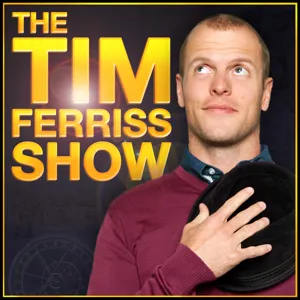"Big Brother isn't watching. He's singing and dancing. He's pulling rabbits out of a hat. Big Brother’s busy holding your attention every moment you're awake. He's making sure you're always distracted. He's making sure you're fully absorbed. He's making sure your imagination withers. Until it's as useful as your appendix." — Chuck Palahniuk
Tristan Harris (@tristanharris) was named by Rolling Stone as one of the "25 People Shaping the World." He was featured in Fortune's 2018 "40 under 40" list for his work on reforming technology, and the Atlantic has called him the "closest thing Silicon Valley has to a conscience."
Formerly Design Ethicist at Google, he is a world-renowned expert on how technology steers our decisions. Tristan has spent nearly his entire life studying subtle psychological forces, from early beginnings as a childhood magician, to working with the Stanford Persuasive Technology Lab, and to his role as CEO of Apture, which was acquired by Google.
Tristan has briefed heads of state, technology company CEOs, and members of the US Congress about the attention economy, and he's been featured in media worldwide, including 60 Minutes, PBS News Hour, and many more. He is the co-founder of the Center for Humane Technology, which can be found at Humanetech.com, and cohost (with Aza Raskin) of Your Undivided Attention podcast, which exposes the hidden designs that have the power to hijack our attention, manipulate our choices, and destabilize our real world communities.
This episode is brought to you by MeUndies, which brings you the softest undies known to man. Whether you like crazy prints or classic black, MeUndies give you the freedom to express yourself comfortably.They're made with soft, sustainable fabric, and they're available in sizes from XS to 4XL.
MeUndies has plenty of options for those looking to up their undie game. You can join its monthly membership. You can build a pack of your favorite undies or socks and save up to 30 percent. You can match with your better half if you're into that sort of thing. New prints drop every Tuesday, and members get access to exclusive prints every month. MeUndies has a great offer for listeners of this podcast: Get 15 percent off your first order with free shipping and a 100 percent satisfaction guarantee at MeUndies.com/Tim.
This episode is also brought to you by LinkedIn Jobs. The right hire can move your business quantum leaps forward, while the wrong hire can crater it. Luckily, you can rely on LinkedIn Jobs to find you the most relevant, qualified candidates so you can focus on making a hire you're excited about.
With five hundred million active members, LinkedIn attracts people every day who want to make connections, grow their careers, and discover new job opportunities. Note that 90 percent of LinkedIn users are open to new opportunities, but not actively scanning job boards. Post a job today at LinkedIn.com/Tim and get $50 off your first job post!
***
If you enjoy the podcast, would you please consider leaving a short review on Apple Podcasts/iTunes? It takes less than 60 seconds, and it really makes a difference in helping to convince hard-to-get guests. I also love reading the reviews!
For show notes and past guests, please visit tim.blog/podcast.
Sign up for Tim’s email newsletter (“5-Bullet Friday”) at tim.blog/friday.
For transcripts of episodes, go to tim.blog/transcripts.
Discover Tim’s books: tim.blog/books.
Follow Tim:
Twitter: twitter.com/tferriss
Instagram: instagram.com/timferriss
Facebook: facebook.com/timferriss
YouTube: youtube.com/timferriss
Past guests on The Tim Ferriss Show include Jerry Seinfeld, Hugh Jackman, Dr. Jane Goodall, LeBron James, Kevin Hart, Doris Kearns Goodwin, Jamie Foxx, Matthew McConaughey, Esther Perel, Elizabeth Gilbert, Terry Crews, Sia, Yuval Noah Harari, Malcolm Gladwell, Madeleine Albright, Cheryl Strayed, Jim Collins, Mary Karr, Maria Popova, Sam Harris, Michael Phelps, Bob Iger, Edward Norton, Arnold Schwarzenegger, Neil Strauss, Ken Burns, Maria Sharapova, Marc Andreessen, Neil Gaiman, Neil de Grasse Tyson, Jocko Willink, Daniel Ek, Kelly Slater, Dr. Peter Attia, Seth Godin, Howard Marks, Dr. Brené Brown, Eric Schmidt, Michael Lewis, Joe Gebbia, Michael Pollan, Dr. Jordan Peterson, Vince Vaughn, Brian Koppelman, Ramit Sethi, Dax Shepard, Tony Robbins, Jim Dethmer, Dan Harris, Ray Dalio, Naval Ravikant, Vitalik Buterin, Elizabeth Lesser, Amanda Palmer, Katie Haun, Sir Richard Branson, Chuck Palahniuk, Arianna Huffington, Reid Hoffman, Bill Burr, Whitney Cummings, Rick Rubin, Dr. Vivek Murthy, Darren Aronofsky, and many more.
See Privacy Policy at https://art19.com/privacy and California Privacy Notice at https://art19.com/privacy#do-not-sell-my-info.










![Albert Wenger - World After Capital - [Invest Like the Best, EP.80]](https://www.podcastworld.io/podcast-images/invest-like-the-best-with-patrick-o-shaughnessy-3pmywn1q.webp)